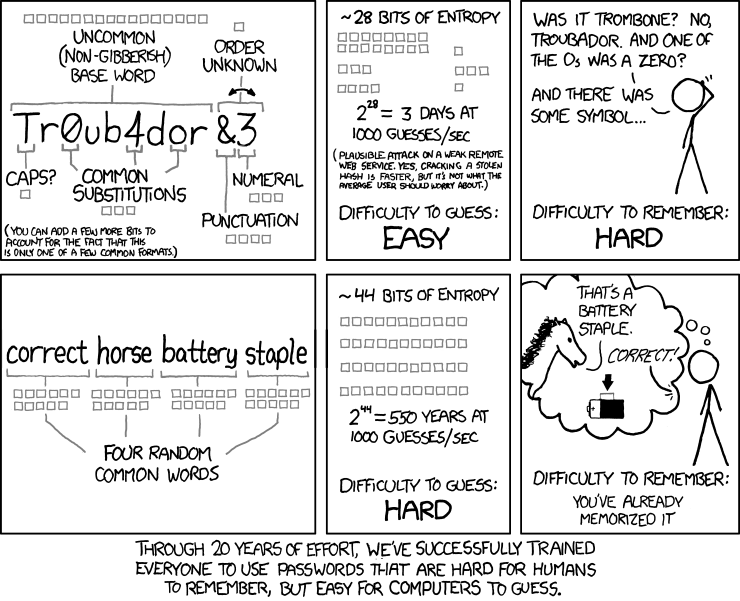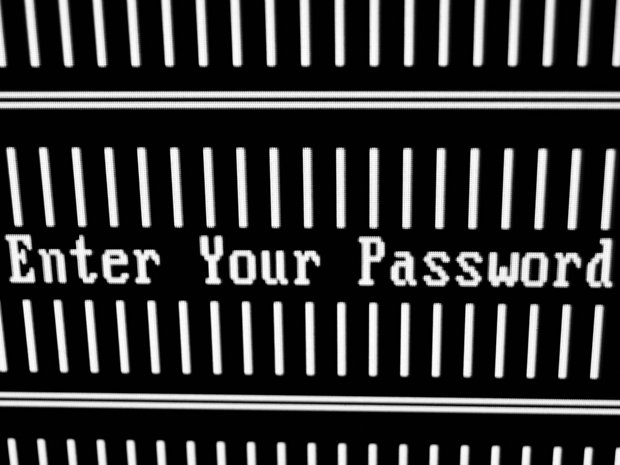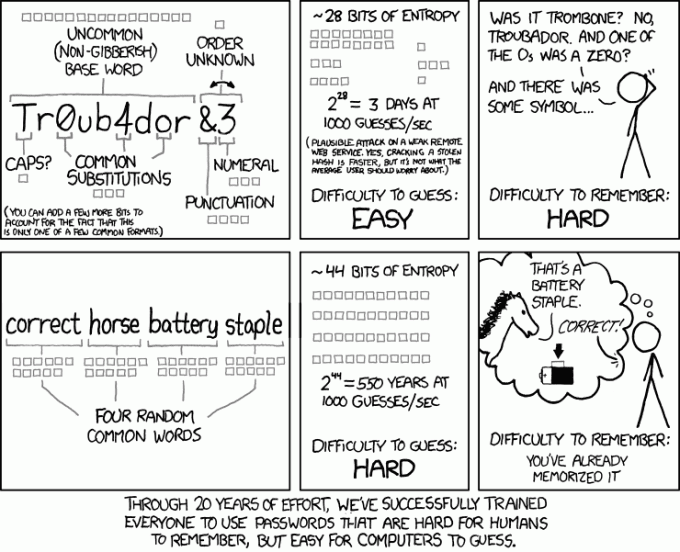
In this day and age, our entire lives are controlled by technology. When you go on the Internet, you can sign in to your Facebook profile, your email, pay your bills, check your bank account balance, look up medical records, and much, much more. To access this information, you must “log in” to your respective accounts, and as we all know, logging in requires two pieces of information—username and password.
We use passwords so frequently, that we often take them for granted. We lose sight of the fact that passwords are vital to the protection of our personal information, hence the term “password-protected.” Since passwords are used to access pretty much every detail of our lives, it would only make sense that we should aim to create one that no one could possibly guess—especially cybercriminals.
Unfortunately, some of us tend to get lazy when creating our passwords and we choose something very basic, or overly common. These mistakes increase our chances of being hacked, because easy passwords can be cracked in a matter of minutes, even by the most amature hacker.
If you want to avoid getting hacked, you must be aware of the ins and outs of password protection. To help you out, we’ve created a list of tips and tricks you can use when creating new passwords, or changing your old ones. By following these five password best practices, you’ll secure your privacy, while simultaneously avoiding the potentially devastating effects that will arise if a cybercriminal gets a hold of your personal information.
1. Password Length
The largest percentage of passwords are six characters long, which is not long enough to be considered strong. The longer your password, the better, and experts say that eight characters is the minimum length required for a strong password.
2. Combination Of Characters

8 Ways To Make Your Password Super Duper Secure
In order to create a strong password, you need to use a combination of lowercase letters, uppercase letters, numbers, and special characters. The majority of people create passwords that are made up of lowercase letters only. The more variation in character type, the stronger your password will be.
3. Don’t Write It Down

The Ultimate Guide for Creating Strong Passwords
You may think that writing down your password will be helpful in the event that you forget it, or you need a friend or family member to log in to your account for you. But writing down your password on a piece of paper or a post-it note is never a good idea. The second you lose track of it, all bets are off, and you could be hacked right away.
4. No Personal Information

How To Outsmart Social Engineering Hackers
This is probably the most important aspect you need to keep in mind when creating a password. Do not use any personal information, such as your name, birthday, significant other, anniversary, kids’ names, etc. All of this information is available via public records search, and hackers are well-aware of that. They can run a simple background check and, boom, they have a whole list of possible passwords they can use to try to hack your account.
5. Different Passwords For Different Accounts

The Only Secure Password Is the One You Can’t Remember
Did you know that 70% of people use the exact same password for multiple accounts? Well, that’s definitely not a good idea, because if a hacker obtains one of your passwords, then they have access to all of your private accounts. The effects of having one account hacked are bad enough, imagine if every single one of your accounts was compromised?
Moral Of The Story
See How Easily Freaks Can Take Over Your Life
Having your personal information hacked is one of the worst scenarios web users can encounter. When cybercriminals get a hold of your private information, the effects can be extremely damaging. They can gain access to your money, your private conversations, your personal address, and more. So, the moral of the story is this: If you want optimal security, you absolutely must focus on creating hacker-proof passwords.



